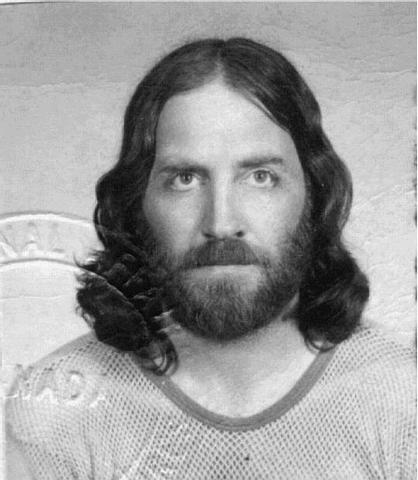Lenny Breau: A Tribute From Glenn
"Maybe I'll go down in history as the guy who started
this one style. All the guitarists who come up and ask
how I do it, maybe one day they can say, "Hey, man, I
learned this from Lenny"...you know,as long as I get
some kind of credit, that's all. I might not end up
making a million bucks, but I'd like to be known as the
guy who started this movement ."
-Lenny Breau

Sometime in the mid-90s I ran across an old jazz-player, a multi-reed player, but mainly tenor sax, Glenn McDonald. We hung out and drank in a Portugese bar in Toronto's Kensington Market. We talked jazz talk and traded stories about various musicians.
His primary focus was on getting some tapes issued that he had recorded of the Canadian jazz guitar legend Lenny Breau doodling in some shack they were living in, around Saskatoon or maybe rural Manitoba.
Lenny had just come out of a junkie situation in New York City where Chet Atkins (or one of the many country guitarists who adored him) kept him under wraps in his pad with a good dealer to supply any junkie needs.
So Lenny was drying out in his native prairies.
A bizarre twist to the time when Lenny and Don Franks did a successful show in the early Yorkville days called "The Connection" in which they portayed the junkie sub-culture. They moved on to New York and the NY sub-culture, and it all unravelled and became real.
Sometime after that Franks was taken up by a very influential hollywood producer and cast as the secondary romantic lead in a film version of Fenians Rainbow. It wasn't very successful.
Both of them retreated to different solitudes. Don to a lake in northern Saskatchewan where he reputedly married a native lady and affected native ways. He later returned to Toronto, and became an established canadian actor and performer.
Lenny supposedly went to Spain and studied under some flamenco masters and came back with even more skill and complexity in his playing.
To me, his old coffee house rival the phenominal Sonny Grenich, who many jazz guitarists cite as an influence, displays Lenny's harmonic side while the legendary Montreal guitarist Nelson Symonds (compared by many to the deceased Wes Montgomery) represents his melodic insight. I heard him play with both of them at different times. Lenny learned from both and the whole pantheon of jazz artists he admired. Lenny attained, after Spain, the harmonic/melodic synthesis that all jazz players strive for but very few ever achieve.
So years later Lenny departed the farm-house where he and Glenn were living in 1975, and wound up in L.A. He was found dead in an empty swimming pool there in 1984.
It was considered by most, a drug-related murder.
Glen recounted the tale many times of his recording Lenny's guitar musings and his hopes of getting the tapes produced. He mentioned his contacts with Randy Bachman who was one of the recipients of his efforts. Being a jazz snob I discounted this Rock person as a potential Jazz producer, unaware that Randy was a long-time friend.
I had heard Lenny many times and knew him over the years. In the early coffee-house days in Winnipeg, in Toronto at the old Mink Club, and in Yorkville, Toronto's bohemian center of the time before he left for New York, as well as in Montreal after his return from Spain in the Cafe Boheme on Rue Guy. I knew he was one of the greatest jazz guitar players in the world and Glenn shared my regard.
Glen was a highly respected Tenor sax player in his own right but was very single-minded in this, his greatest quest. He ignored, as many jazz musicians do, his own health and well-being and died an early death.
He passed away in 1998 and had a nice tribute in a Yorkville Annex church. I wasn't there for the funeral, but I was uplifted when less than a year later Randy Backman produced the tapes.
Victories can be hard-won. Thanks Randy. Thanks Glenn.
The album which came out of Glenn's tapes was titled "Cabin Fever"
a state with which I'm now becoming familiar.
Link to Lenny's Tribute Page
Originally published in Montreal Serai


2 Comments:
This comment has been removed by the author.
Glenn was a personal friend; he had been negotiating with Bachman for some time to sell those tapes, but they had never been able to agree to terms. In the end Glenn died a pauper. I'd like to know just how Bachman did get those tapes after Glenn died, and who he paid.
Post a Comment
<< Home